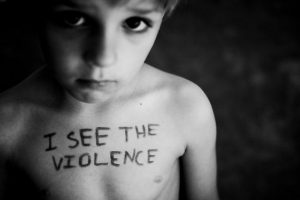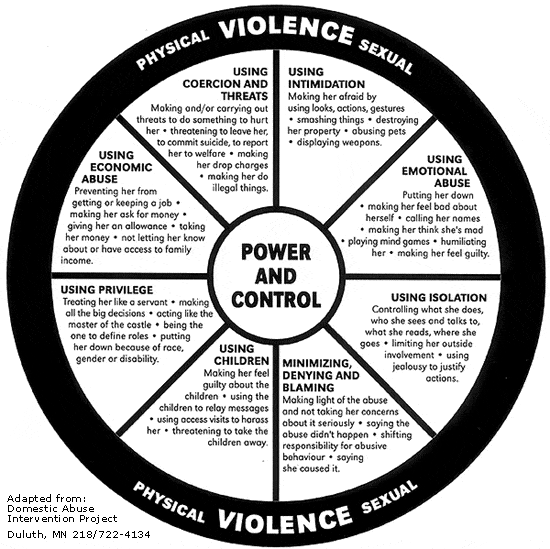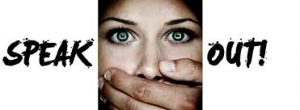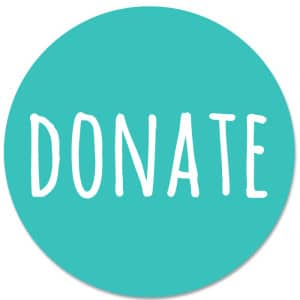I have experienced Domestic Violence for all of my childhood and a part of my adult life. My father was the most wonderful father you could ever imagine: he was the warm parent – the one with cuddles and tenderness, compassion and empathy. He would participate in my imaginary games, he spent time with me, he championed my successes and came to rescue me when I needed him. He was also the most horrible father you could ever imagine. With a flip of the switch he would become angry and hostile – the words that came out of his mouth to criticise me would aim for my already existing insecurities and he would repeat them over and over for years and years so I would believe them at my very core. His physical abuse of me started at a very young age… as early as I can remember – my first memory was when I was about 5 years old. It was slapping my face till my lip was swollen, it was smacking me with a shoe or an inch-thick stick till I had marks on my legs and body for reasons that didn’t make any sense to me. It was punching my sister in the mouth till she needed stitches. It was terrifying. I never knew from one moment to the next what would happen next with him – he was unpredictable.
It stopped when I was about 11 years old when my mother had the courage to finally stand up to him – in response to her stand against his “discipline” he informed her that she could then raise the children on her own and he wanted no part of it. He closed his bedroom door (where he “worked”) and I had very little to do with him after that even though we still all lived in the same house together.
The abuse returned and became worse when I was a teenager. I was told I was a “filthy bitch” when I had my period, I was a “hussy” when I had two buttons undone on my shirt, my weight was criticised, I was a “good for nothing,” I was “selfish and self-centred,” I was a “horrible person,” I was regularly punched and frequently shamed. I hit back – I was angry – I was no match for him but my retaliation made me feel guilty and responsible. My family never spoke about it – to this day, I believe we went through our own private hell of abuse and the “code of silence” meant that we never knew what went on for another person living in the same house – he seemed to do it behind closed doors in another part of the house to keep the silence. I left home when I was 17 years old – I was so fearful at home and it was just getting worse and worse.
Inevitably, I married a man who is the kindest most beautiful soul you could ever meet… who, with a flip of the switch, becomes an incredibly angry man who will criticise me, put me down, threaten me, put fear into me. He is unpredictable.
The first time he hurt me physically, I was 20 weeks pregnant. Naturally, I developed antenatal anxiety and there is no doubt in my mind that my relationship with my husband had its part to play. We reconciled after about 5 or 6 sessions of marriage counselling at the time of my baby’s birth. I was terrified of giving birth without him and raising a young baby on my own. For the next nine months I had undiagnosed postnatal depression and I was living in an abusive relationship. The second time he hurt me physically, my son was nine months old, I had been diagnosed with postnatal depression and given treatment, and I left him for the last time. I did it because I was scared of him, but I also did it because I had opened a brochure from the Brainwave Trust on the effects of conflict/domestic violence on a baby’s brain and development and the likelihood of his developing learning difficulties, delinquency, mental illness, addictions… Despite my absolute fear and pain of being alone (I had no family support and no close friends I felt I could talk to), I stayed away for my baby.
I am a smart, educated woman with a number of achievements – no one would ever guess at how I am tormented by self-doubt, loneliness, low self-esteem and a lack of resources – I hide all of these things, but these are the things that have kept me going back to him for his help, support, friendship – even though his “flip of the switch” has included death threats, punching me, threatening custody of our child, threatening to report me to CYFs, criticisms and put-downs that target my vulnerabilities and insecurities. I am drawn in by that very nice part of him – the part that the rest of the world gets to see and believes in.
Domestic Violence can be very difficult for any of us to understand… Why does the victim keep returning to the relationship? Why does the perpetrator do this? There is a very good article that I have read here – it was helpful for me to read. I relate to the cloud of confusion that hung over my head after I left him – I felt disoriented: “Am I doing the right thing?” “Is this my fault?” Truth seemed to be so hard to find – his truth sounded a lot more likely than my truth. My family further confused the matter – my mother (naturally) felt uncomfortable talking about it and would ask me “well what did you do [to encite that response]?” My sister-in-law refused to testify in court (obtaining a protection order) a conversation we had when I told her that my husband had threatened to kill me. She also picked me up from the police station after my husband had punched me and I’d given a statement and took me home. The entire journey the conversation was about trivial things that were happening in her and her kids’ lives while I sat profoundly traumatised. It was crazy-making stuff.
Truth can be a very difficult thing to find for someone who is used to emotional/psychological abuse that goes along with physical abuse. If you have never heard of the term gaslighting then it is a term I encourage you to investigate if you are at all interested in understanding the nature of abusive relationships. The term comes from a play and film in the 30’s and 40’s where, in the plot, the husband convinces his wife that she is insane by manipulating small aspects of her environment. Today, the term is used when you allow a person to define your reality. In my case, my husband would distort reality by maximising my faults in a conflict and minimising his own. The faults he would point out would often have truth in them which would help me to believe them. This would result in my believing that “maybe it wasn’t so bad” and “maybe it was at least partly my fault.” Being an alcoholic for most of his life, though he gave up the drinking side of it, he never gave up his skills at blaming other people and remaining a victim himself. And he was extremely convincing as an innocent party – his temper was rarely ever shown in public and rather than charming and smarmy he came across as warm, gentle and humble. My family loved him and found it difficult to believe me.
As the article on Domestic Violence says, my husband firmly believes that he is not responsible for his reactions to me – that I am responsible for them. He sees things in black-and-white. Either he is the monster that I make out that he is, or he is the nice, gentle guy – he could not possibly be both, so he rejects one. There is no question that he is a victim of domestic violence himself, but he cannot acknowledge himself as a perpetrator. In fact, he paints himself as a victim to me. When I hang up the phone because he has told me to shut-up and put me down in front of my son, he accuses my boundary-setting as “controlling.” This is an example of gaslighting – attempting to warp my perspective of reality. When you are engaged with a person like this on a daily basis and you don’t have a strong sense of self-esteem/self-worth, it will drag you into an abusive relationship that is difficult to get out of.
Anger Management programmes don’t have a high success rate. The longer ones have a higher success rate than the shorter ones. This is because it takes a long time for the perpetrator to take responsibility for their behaviour and stop blaming the victim. I also think it may be that some programmes focus on anger being the problem, but just as the Domestic Violence article above states, in fact it is less about anger management as it is about power and control.
I remember having a conversation with one male worker at a domestic violence agency, saying to him “but he’s not really a controlling person” (he wasn’t the classic abusive man who gets jealous or possessive, insists on controlling the money or not letting me go out)… but then the worker reminded me that I was afraid to say “no” to him, because if I ever said “no” to him – at the very least it would result in his anger/temper which I was afraid of, at the very worst, he would follow through on a threat – and that threat would be not returning my son to my care or taking me to court or to CYFs.
After my husband punched me, I called the police. I had fallen to the ground and I remember moaning a gutteral sound that sounded like a wounded animal to my own ears – it felt like emotional pain as much as anything else. I stumbled outside and I called the police and I was hyper-ventilating so much to the operator on the phone I couldn’t complete a sentence: “I can’t breathe!” I told her… I was having a panic attack. When the police arrived, they were initially sympathetic towards me (I was waiting on the side of the road for them to come) but then they went inside to speak to my husband. I was anxious. I knew how clever he was at being calm, collected, reasonable, warm, friendly, co-operative, intelligent… Sure enough, the police returned and took me to the police station where I made a statement, but it was in stoney silence – they believed his story. I was made to feel like the perpetrator. I remember when the policeman went out the back and returned to me waiting in the waiting room, he seemed surprised at my tears that wouldn’t stop streaming down my face. I knew that whatever statement my husband had given him conflicted with what he saw then. My statement was fairly confused and fragmented. I was nursing a headache from the blow to my head and the stress and I was traumatised – so I agreed to questions the policeman asked me (sometimes putting words in my mouth) because I still felt partly responsible for the punches my husband had given me. And the policeman believed that too.
The police never gave me any information for victim support or domestic violence support. After I got home, I felt so confused, disorientated and still had a headache that I telephoned the after hours doctors – the nurse on the phone recommended I go and see the after hours doctor. She never referred me to any social supports either. Neither did the after hours nurse or doctor that assessed me. I didn’t have a concussion it turned out – I was just incredibly traumatised and I had no idea how to process it. Fortunately, I accessed counselling and support from a family violence agency myself.
When I filed for a permanent protection order, my estranged husband filed for custody of our child. It was my absolutely worst fear and sent me a very clear message: “If you stand up to me, I will get you and make you pay – you’ll be sorry…” The affidavits that ensued included statements from himself, his sister, his friend and (what felt like the ultimate betrayal) someone who had stayed in my house. They used every example they could think of to depict me as being both a bad person and a bad mother. This wreaked havoc on my life-long low self-esteem and self-doubt. I was advised well by my lawyer but I even felt her doubt me at times.
The first time I went to court, I was trembling and crying the entire journey into the city. Once I arrived (alone) my lawyer kept asking me if I was okay. The anxiety and fear at losing my child was overwhelming. I sat in the courtroom with no support, unable to stop crying and shaking but trying desperately to get a hold of myself while my husband remained calm throughout the entire process. It was only a fifteen-minute directions meeting and I was to remain silent the entire time. When the lawyer for child stood to address the judge to say that the child’s father had reported that “things had improved lately” in terms of my care of our child, despite myself I started sobbing and had to leave the room. Throughout my pregnancy and even with my postnatal depression I had fought to do what was best for my child and care for him in absolutely the best way I knew – to be described as an unfit mother (as per the affidavits) and to hear people speak about me in this way was for me the worst blow you could ever give me.
Fortunately, my husband never won custody of my son – we now have a parenting order in place. I don’t have a permanent protection order in place but I do have signed undertakings that I can take to court to apply for a permanent protection order should I ever need to. I now keep my distance from my ex-husband. I don’t go to him for friendship or help or support. I am working at increasing my personal resources and social network.
I share this story to enable those who want to understand Domestic Violence better, I share it so that doctors, nurses, police, lawyers, agencies who come into contact with women who are a victim to Domestic Violence make sure that they refer that woman to Domestic Violence support services, and I share it for those women who are a victim of Domestic Violence – perhaps struggling with depression (a common symptom for those in an abusive relationship) who are thinking about getting some help – who are thinking about talking to someone about it or wanting to get out of the relationship.




